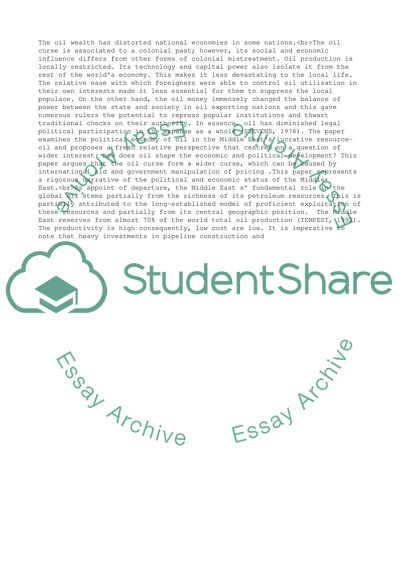Cite this document
(Middle East Oil and it's political and economic impact Essay, n.d.)
Middle East Oil and it's political and economic impact Essay. https://studentshare.org/macro-microeconomics/1820137-middle-east-oil-and-its-political-and-economic-impact
Middle East Oil and it's political and economic impact Essay. https://studentshare.org/macro-microeconomics/1820137-middle-east-oil-and-its-political-and-economic-impact
(Middle East Oil and it'S Political and Economic Impact Essay)
Middle East Oil and it'S Political and Economic Impact Essay. https://studentshare.org/macro-microeconomics/1820137-middle-east-oil-and-its-political-and-economic-impact.
Middle East Oil and it'S Political and Economic Impact Essay. https://studentshare.org/macro-microeconomics/1820137-middle-east-oil-and-its-political-and-economic-impact.
“Middle East Oil and it'S Political and Economic Impact Essay”. https://studentshare.org/macro-microeconomics/1820137-middle-east-oil-and-its-political-and-economic-impact.


